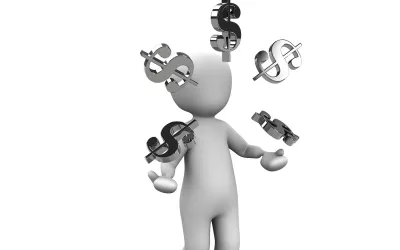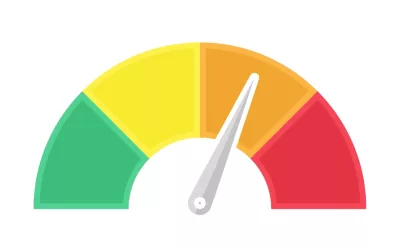Embarking on the journey of purchasing your first home is a thrilling and sometimes daunting experience. As a first-time homebuyer, you may face challenges ranging from understanding financial jargon to navigating the complexities of the housing market. However, with the right knowledge and preparation, this journey can also be immensely rewarding. Understanding the home buying process is crucial for making informed decisions and ensuring a smoother, more confident path to homeownership.
The Importance of Knowing Your Credit Score
Your credit score plays a pivotal role in your ability to qualify for a mortgage. It is a numerical representation of your creditworthiness and affects not only your eligibility for a loan but also the interest rates you’ll be offered. A higher credit score can lead to lower interest rates, translating into significant savings on monthly payments and over the life of the loan.
To improve your credit score before applying for a mortgage, consider these tips:
- Pay off outstanding debts.
- Make all credit card and loan payments on time.
- Avoid opening new lines of credit close to your application date.
- Check your credit report for errors and dispute any inaccuracies.
- Avoid paying off collections until speaking with your loan officer.
Down Payment Options
Understanding your down payment options is crucial for determining your financial readiness and loan eligibility. Here are some common options for first-time homebuyers:
- Conventional Loans: Typically require a down payment of 5-20%. However, there may also be 3% and 0% down available. The more you put down, the lower your monthly payments and private mortgage insurance (PMI) costs.
- FHA Loans: Require as little as 3.5% down. Ideal for those with lower credit scores or less savings.
- VA Loans: Available to veterans and active-duty military, often requiring no down payment.
- USDA Loans: Offer no down payment for eligible rural and suburban homebuyers.
Each option has its pros and cons, and the best choice depends on your financial situation. Consulting with a mortgage broker can help you determine the most suitable option.
100% Financing FHA Loan
An FHA loan, backed by the Federal Housing Administration, is designed to help first-time homebuyers with lower credit scores and smaller down payments. With 100% financing, you can finance the entire purchase price of the home, minimizing the upfront cost. The balance of the down payment is covered by a 2nd mortgage.
The benefits of FHA loans include lower credit score requirements, competitive interest rates, and lower down payment requirements. However, they also require mortgage insurance premiums (MIP) and have loan limits based on your area. To apply for an FHA loan, ensure your credit score meets the minimum requirements, save for the down payment and closing costs, gather necessary documentation (proof of income, credit history, etc.), and apply with your mortgage lender.
100% Financing Conventional Loan
The 0% Down Conventional Purchase program offers a 3% loan up to $15,000 for home purchases, eliminating the need for an upfront down payment. This second lien does not require monthly payments or accrue interest and is due only upon refinance, payoff, or final payment of the first lien. The program makes homeownership more accessible by removing the barrier of a large down payment.
The program is inclusive, with specific criteria for different borrower types. For Home Possible®, borrowers must have an income at or below 80% of the Area Median Income and a minimum FICO score of 620. For HomeOne®, there are no AMI restrictions if at least one borrower is a first-time homebuyer, with a minimum FICO score of 700. The program adheres to conforming loan limits and does not require first-time homebuyer status for Home Possible®, allowing current homeowners to purchase a new home with zero down payment.
The Application Process
Applying for a mortgage involves several steps. Start with pre-approval to understand how much you can borrow. Then, find a home within your budget and submit a formal mortgage application with your mortgage broker. The lender will evaluate your financial status and the property during the underwriting process, leading to loan approval and preparation for closing. Gather necessary documents early and maintain clear communication with your lender to ensure a smooth process.
Closing on Your New Home
Closing is the final step in purchasing your home. It involves a final walk-through to inspect the property, signing the mortgage and other legal documents, and paying fees associated with processing the mortgage and transferring ownership. Expect to pay 2-5% of the home’s purchase price in closing costs. To lower your amount to close even more, your closing cost may be paid by seller credits, lender credits, or with a gift.
Navigating the path to homeownership as a first-time homebuyer is an exciting journey that requires careful planning and informed decision-making. By understanding your credit score, exploring down payment options, and knowing the ins and outs of different loan types, you can confidently move through the application and closing processes. Take your time, seek professional advice, and remember that understanding the home-buying process is key to making your dream of homeownership a reality.
Ready to embark on your homebuying journey? Connect with us at Capital City Mortgage for personalized guidance and support every step of the way.
Can I get a mortgage if I’m self-employed?
Being self-employed comes with several advantages that many individuals find appealing. However, for those considering homeownership, there may be some concerns regarding mortgage eligibility. Rest assured, it is indeed possible for self-employed borrowers to secure a...
What are my mortgage down payment options?
When it comes to purchasing a home, one of the most important aspects to consider is the down payment. Unless you have the ability to pay for a house in cash, a mortgage and down payment will be necessary. But what are your options when it comes to making a down...
How do I improve my credit score?
Your credit score is a critical factor that lenders use to determine your creditworthiness and assess your risk level as a borrower. Whether you're looking to apply for a mortgage, car loan, or credit card, having a good credit score is crucial for obtaining favorable...




